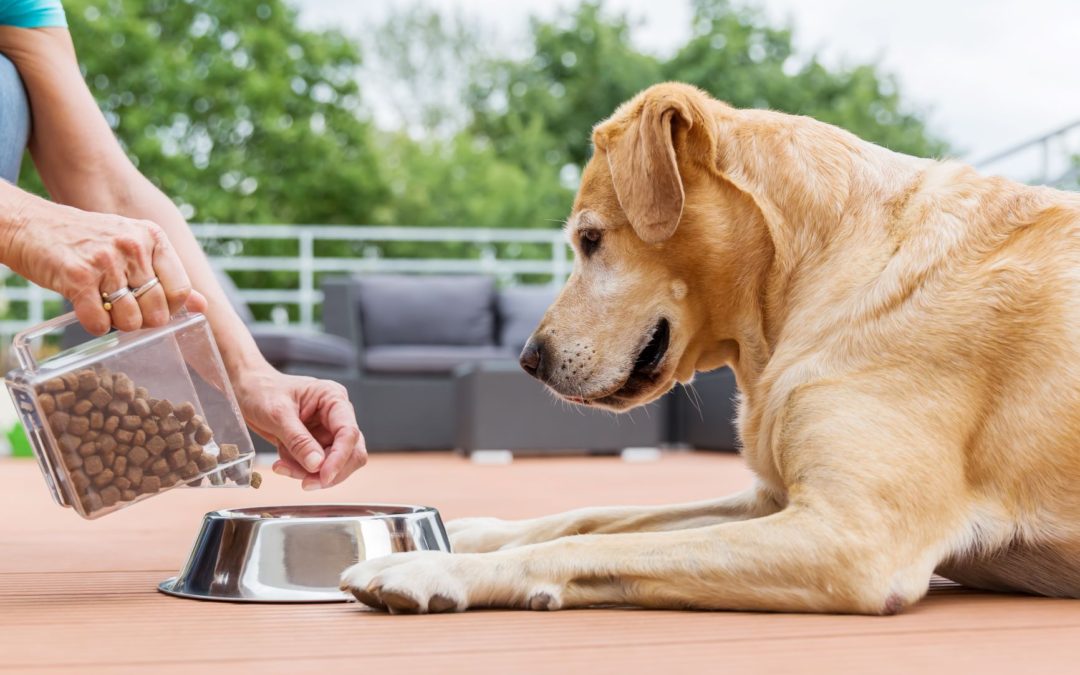According to a recent survey by the Association for Pet Obesity Prevention, more than half of pets—around 56 million cats and 50 million dogs—in the United States may be overweight or obese!* And unfortunately, being overweight can hurt your pet in a number of ways.
If your pet is carrying extra weight, you’re not on your own. We’ll work with you to create an individualized plan to help get your pet trimmed down and on a weight maintenance plan.
Is Your Pet Overweight?
Take a moment to do this quick check:
- You should be able to easily feel your pet’s ribs if you run your fingers across your pet’s abdomen.
- From the side, you should also be able to see a “tuck-in” or upward slope from the belly toward your pet’s hind end.
- From the top view, your pet should have a visible waist behind the ribs.
- If you can see your pet’s ribs, though, then your pet may be too thin.
Body condition score (or BCS) is another way we determine your pet’s ideal size and shape. We assign a score of 1 to 9, with 1 being too thin and 9 being obese. The ideal weight we’re aiming for is in the middle, at a 4 or 5.
Check out these charts from the World Small Animal Veterinary Association that show ideal body condition for healthy dogs and cats. Ideal weight varies, even among similarly sized dogs or cats. When you bring your pet in for a visit, we’ll show you how to gauge your pet’s weight and BCS.

What Are the Health Risks for Overweight Pets?
Unfortunately, carrying extra weight can cause all kinds of health issues for our pets. Both dogs and cats are at increased risk of developing:
- Arthritis and other joint issues
- Back problems
- Certain cancers
- Decreased immune function
- Diabetes
- Heart disease
- High blood pressure
- Kidney disease
- Liver disease
- Respiratory issues
- Urinary tract disease
Even scarier, cats and dogs carrying extra weight may not live as long as those at a healthy weight.
The good news is that if your pet is at a healthy weight or gets back to an ideal BCS, you’ll be giving your pet the gift of a better quality of life, less risk for certain diseases, and quite possibly a better chance of living longer.
Could My Pet Just Have an Under Active Thyroid?
It is possible, which is why your Jacksonville veterinarian will check your pet to rule out any medical causes that could be contributing to weight gain. However, most pets who are overweight have simply been eating more calories than they’ve burned.
How Can Your Vet Help Your Pet Lose Weight?
Together, we’ll come up with a weight management plan that includes practical and achievable nutrition and exercise goals for your pet. We can also give you advice on helping to keep your pet feeling full while shedding pounds.
When your pet comes into Jacksonville Community Pet Clinics for a check-in, we’ll make sure your pet is staying on track and help keep you motivated. Together, we can get your pet’s weight back to “just right.”
Call or schedule an appointment today to start your pet on a healthier path.
*Association for Pet Obesity Prevention. 2018 pet obesity survey results. https://petobesityprevention.org/2018. Accessed December 12, 2019.


